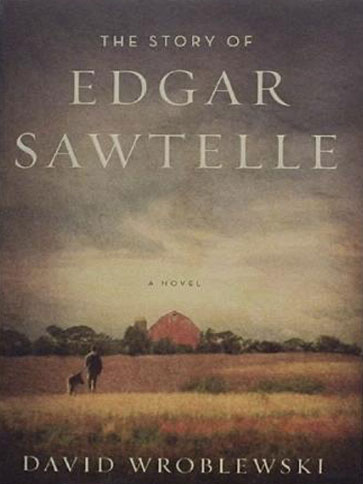The Story of Edgar Sawtelle
David Wroblewski
 If your requirement for a good book is that it ends happily, you will want to skip David Wroblewski’s The Story of Edgar Sawtelle. However, if like me you savor good writing for the sake of good writing, great descriptions of the Wisconsin countryside in the 1970s, descriptions of its memorable characters, and beautiful, free-flowing writing, you won’t want to miss it. All of these things kept me reading and hoping to be in the end rewarded for my patience and dedication. Besides, Oprah said it was a great book, and it’s rare that I have disagreed with her.
If your requirement for a good book is that it ends happily, you will want to skip David Wroblewski’s The Story of Edgar Sawtelle. However, if like me you savor good writing for the sake of good writing, great descriptions of the Wisconsin countryside in the 1970s, descriptions of its memorable characters, and beautiful, free-flowing writing, you won’t want to miss it. All of these things kept me reading and hoping to be in the end rewarded for my patience and dedication. Besides, Oprah said it was a great book, and it’s rare that I have disagreed with her.
This is the tragic story of Edgar Sawtelle, a young boy born without a voice but with a special gift and love for training dogs. He is the only child born to parents who before his birth had undergone the loss of a number of babies either through miscarriages or still birth. Perfect in every way, but without speech, he learns to communicate with sign, both with humans and the Sawtelle dogs, a fictional breed of dogs that has been in his family for three generations.
My requirement for a good book is not that it always ends happily (thus is life), but that it ends satisfactorily. That does not happen here. After we journey with Edgar in his coming-of-age story, we return with him to his home where everything literally goes up in smoke. Even the records of five generations of Sawtelle dogs go up in flames.
Edgar’s father dies suddenly and mysteriously; but supernaturally, he returns to his son and tells him he was murdered. He is charged to find the evidence because no one will believe him without it. In town he encounters a store owner with whom he has another supernatural experience. From her he learns what the evidence of his father’s murder is that he should look for. When he can no longer stand being at home around his mother who has now befriended his uncle, he begins sleeping in the barn. When another fatal accident occurs, he flees, taking three of the dogs from the litter he has birthed and trained with him. On his journey he encounters Henry, and when he leaves to return home, two of the three dogs choose to stay with Henry. He finds the evidence he has been looking for, but what good is evidence if no one knows about it? Not even his mother.
So when everything goes up in flames, the dog that returned home with Edgar leads the other dogs away in the direction of Henry’s place, we suspect, as that is not really clear.
We are left with so many questions. Perhaps Wroblewski planned it this way for a sequel. Don’t count on it. What was the point of a coming-of-age story only to end with the death of the hero without his acting on the knowledge he has gained, especially about himself? Nothing is resolved, and I am left unsatisfied . . . because the book has ended with no plot resolutions.
Reviewed by Lee L. Peoples
Comments are closed.